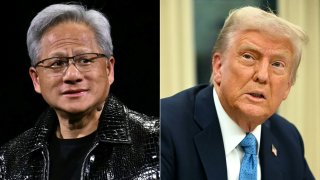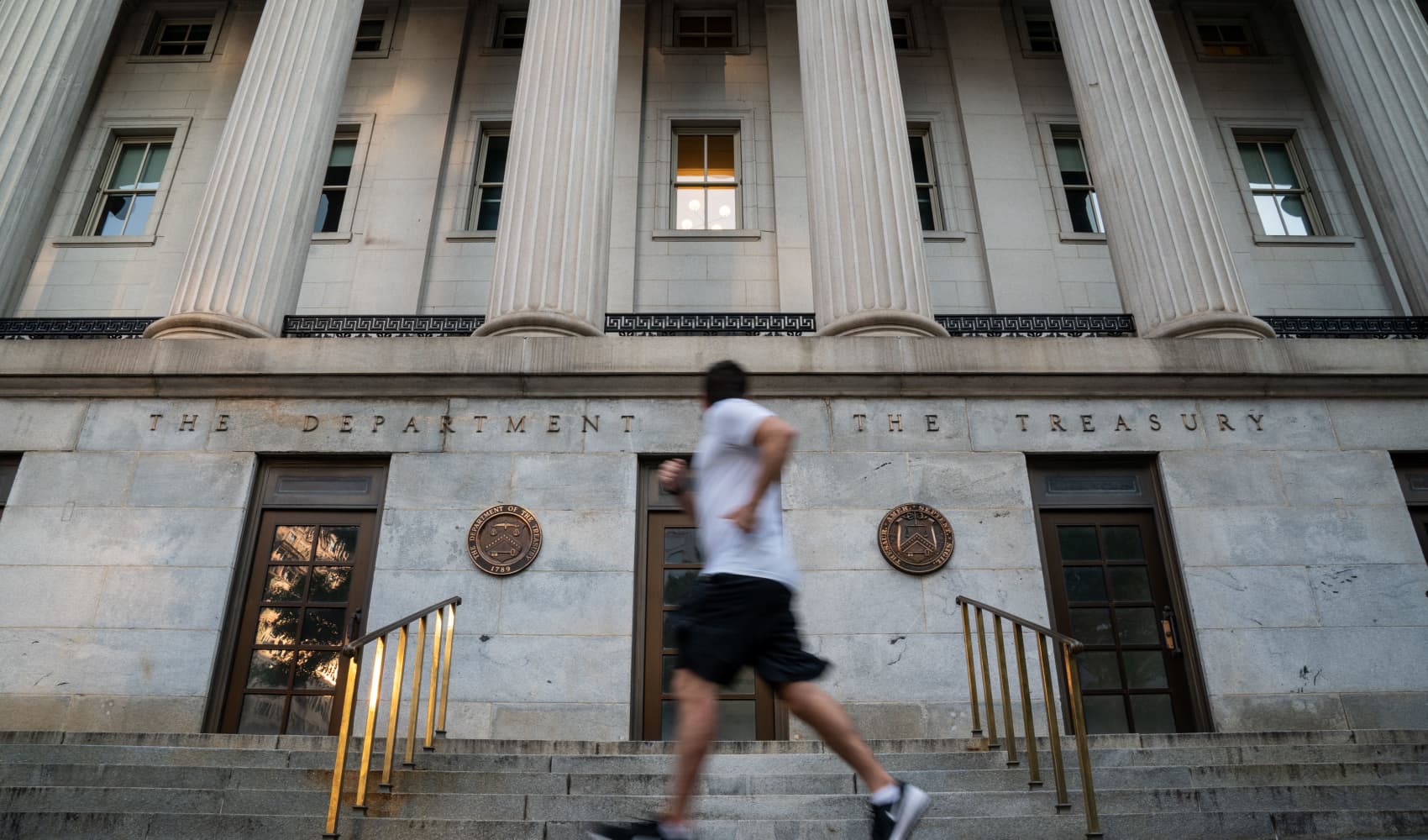
- Tesla and Nvidia led a tech rally this week.
- Easing trade tensions between the U.S. and China and the axing of the Biden administration's chip export rule helped the sector.
- President Donald Trump's dealmaking trip around the Middle East also added to the bullishness.
It's been a stellar week for technology stocks thanks to thawing global tensions and President Donald Trump's Middle East jaunt.
Stream NBC4 newscasts for free right here, right now.
Tesla and Nvidia jumped 17% and 16%, respectively, this week as tensions eased between the U.S. and China and Trump's Middle East dealmaking tour put tech deals in the spotlight.
Both China and the U.S. announced a 90-day pause on tariffs, in a move that signaled a major de-escalation of the sweeping global trade war that has rattled markets since April.
We have the news you need to know to start your day. Sign up for the First & 4Most morning newsletter — delivered to your inbox daily.
During a White House-led visit to the Middle East this week, Nvidia CEO Jensen Huang shared plans to sell more than 18,000 of its artificial intelligence Blackwell chips to Saudi Arabia-based Humain to power data centers.
AMD also said it would supply chips to Humain. The stock popped nearly 14% for the week. Palantir and Taiwan Semiconductor Manufacturing were among the other tech stocks that surged more than 10%.
Tesla CEO Elon Musk was also in Saudi Arabia and said the kingdom approved the use of SpaceX's Starlink satellite internet service for aviation and maritime use. Musk also said he plans to bring robotaxis to the country.
Money Report
In the United Arab Emirates, the White House announced a partnership to build a sweeping AI campus with several U.S. companies. A source told CNBC that Nvidia is among the companies supporting the project.
Recent White House plans to dial back chip export curbs on China from President Joe Biden's administration for a "much simpler rule" also benefited the sector.
Like many peers, Nvidia needs a license to ship its AI chips to China after the U.S. began cracking down on exports in 2022 due to national security concerns.
Last month, Nvidia said it would record a $5.5 billion charge from H20 GPU shipments to China, which is a key market for the U.S.-based chipmaker. Huang told CNBC that China's AI market could hit $50 billion over the next two to three years, and missing out would be a "tremendous loss."






